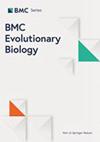“Patchiness” in mechanical stiffness across a tumor as an early-stage marker for malignancy
IF 3.4
Q1 Agricultural and Biological Sciences
引用次数: 0
Abstract
Mechanical phenotyping of tumors, either at an individual cell level or tumor cell population level is gaining traction as a diagnostic tool. However, the extent of diagnostic and prognostic information that can be gained through these measurements is still unclear. In this work, we focus on the heterogeneity in mechanical properties of cells obtained from a single source such as a tissue or tumor as a potential novel biomarker. We believe that this heterogeneity is a conventionally overlooked source of information in mechanical phenotyping data. We use mechanics-based in-silico models of cell-cell interactions and cell population dynamics within 3D environments to probe how heterogeneity in cell mechanics drives tissue and tumor dynamics. Our simulations show that the initial heterogeneity in the mechanical properties of individual cells and the arrangement of these heterogenous sub-populations within the environment can dictate overall cell population dynamics and cause a shift towards the growth of malignant cell phenotypes within healthy tissue environments. The overall heterogeneity in the cellular mechanotype and their spatial distributions is quantified by a “patchiness” index, which is the ratio of the global to local heterogeneity in cell populations. We observe that there exists a threshold value of the patchiness index beyond which an overall healthy population of cells will show a steady shift towards a more malignant phenotype. Based on these results, we propose that the “patchiness” of a tumor or tissue sample, can be an early indicator for malignant transformation and cancer occurrence in benign tumors or healthy tissues. Additionally, we suggest that tissue patchiness, measured either by biochemical or biophysical markers, can become an important metric in predicting tissue health and disease likelihood just as landscape patchiness is an important metric in ecology.肿瘤机械刚度的 "斑块性 "是恶性肿瘤的早期标志物
作为一种诊断工具,肿瘤的机械表型(无论是单个细胞水平还是肿瘤细胞群水平)正受到越来越多的关注。然而,通过这些测量能获得多少诊断和预后信息仍不清楚。在这项工作中,我们重点研究了从组织或肿瘤等单一来源获得的细胞机械特性的异质性,并将其作为一种潜在的新型生物标记。我们认为,这种异质性是机械表型数据中一个传统上被忽视的信息来源。我们利用基于力学的三维环境中细胞-细胞相互作用和细胞群动态的内部模型,来探究细胞力学的异质性如何驱动组织和肿瘤的动态变化。我们的模拟结果表明,单个细胞机械特性的初始异质性以及这些异质性亚群在环境中的排列会决定细胞群的整体动态,并导致健康组织环境中恶性细胞表型的生长转变。细胞机械型及其空间分布的整体异质性可通过 "斑块度 "指数进行量化,该指数是细胞群中整体异质性与局部异质性之比。我们观察到,斑块度指数存在一个临界值,超过这个临界值,整体健康的细胞群就会稳定地向恶性表型转变。基于这些结果,我们认为肿瘤或组织样本的 "斑块度 "可以作为良性肿瘤或健康组织发生恶性转化和癌症的早期指标。此外,我们还认为,通过生化或生物物理标记测量的组织斑块度可以成为预测组织健康和疾病可能性的重要指标,就像景观斑块度是生态学中的重要指标一样。
本文章由计算机程序翻译,如有差异,请以英文原文为准。
求助全文
约1分钟内获得全文
求助全文
来源期刊

BMC Evolutionary Biology
生物-进化生物学
CiteScore
5.80
自引率
0.00%
发文量
0
审稿时长
6 months
期刊介绍:
BMC Evolutionary Biology is an open access, peer-reviewed journal that considers articles on all aspects of molecular and non-molecular evolution of all organisms, as well as phylogenetics and palaeontology.
 求助内容:
求助内容: 应助结果提醒方式:
应助结果提醒方式:


